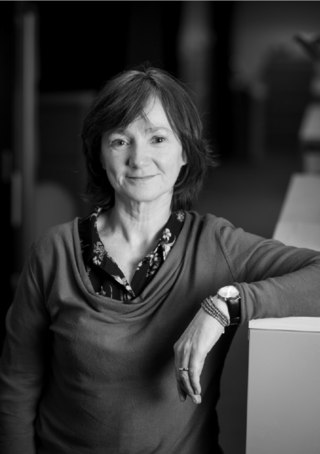Autism
Psilocybin May Reveal the Role Serotonin Plays in Autism
A new study targets the serotonin system in autism.
Posted May 24, 2022 Reviewed by Hara Estroff Marano
Key points
- Autism spectrum condition (ASC) encompasses a complex and diverse area of need that is not well understood.
- The brain serotonin pathway has a key role in a range of essential functions such as sensory processing, cognition, mood, and sleep.
- Psilocybin is known to act on serotonin receptors; it is being used to test the role of serotonin in autism.
- Individual differences in the serotonin system response to psilocybin could suggest a role for the drug in some people with autism.
By Dr. Grainne McAlonan
According to data from the U.S. Centers for Disease Control and Prevention (CDC), about one in 44 children is identified as autistic.
Prevalence varies across geographies, but the condition affects all demographic and socioeconomic groups. It is reported that four times more boys are autistic than girls, though this is an area of active inquiry.
The severity of autism spectrum condition (ASC) can vary widely, but it can have a wide-ranging impact on the life of the person, as well as their loved ones, because it often involves challenges with social interaction, repetitive behaviors, and strong preoccupations as well as sensory sensitivities. Autistic people also have high rates of mental health difficulties: Studies have found that most people with ASC (perhaps as many as 95%) have at least one co-occurring mental health condition, such as anxiety, depression, or obsessive-compulsive disorder.
Why ASC research matters
While we know that ASC is a neurodevelopmental condition, we do not yet fully understand how its multiple genetic and environmental causal influences give rise to such diverse presentations. Given its impact and its prevalence, it’s important to change this state of information.
The traditional approach to ASC—treating everyone like members of a single uniform category, rather than as individuals with quite different symptom clusters and, likely, etiologies—hasn’t served people well. We have no medications specifically tailored to the symptoms that cause individual distress. Also, autistic people do not always respond to conventional treatments for mental health difficulties or may experience unacceptable side effects. We need a different approach. And so my team and I are focusing on mechanisms, not diagnosis, to offer more choices to autistic people.
Psilocybin in ASC brain pathway research
In a study about to get underway, my colleagues and I are going to be using psilocybin, a psychedelic drug that we know works on the 5-HT, or serotonin, pathways of the brain. The serotonin pathway has a critical role in a wide range of essential functions, such as sensory processing, cognition, mood and sleep. We will use single low doses, which are unlikely to generate the perceptual experiences associated with higher doses.
One of the most consistent findings in ASC research is differences in the serotonin pathway. For example, more than 25% of autistic people have high blood serotonin levels; and in the brain, autism is associated with altered metabolism of serotonin and the activity of the serotonin transporter.
Differences in the levels of the serotonin receptors targeted by psilocybin have also been reported in autism. However, a difference observed ‘on average’ in a component of the serotonin pathway in autistic and nonautistic people does not tell us about differences at an individual level and whether they are relevant to brain function or clinically important.
The idea that the serotonin system functions differently in individuals with ASC can be directly tested by using a drug known to act on that system. If the system is functioning differently in an autistic individual, there should be a difference in brain response to the drug compared to non-autistic individuals.
We’ve chosen psilocybin because it acts on serotonin receptors known to be involved in sensory processing and the regulation of brain networks that underlie mood and cognition—all processes often altered in ASC. We will measure the shift in brain function in response to psilocybin, using functional MRI to capture response at the level of large-scale brain networks and EEG to capture a shift in processing of sensory stimuli in the auditory, visual, and touch domains.
Importantly, we know that our measures pick up individual shifts in brain function. Thus, we hope to be able to say to what extent an individual autistic participant has a difference in the serotonin control of their brain networks and/or sensory processing.
If or when we identify individual differences in the serotonin system targeted by psilocybin, the next step will be to ask whether, in those who might benefit clinically, we first can establish that there is a biological response to the drug.
Conclusion
Ultimately, this research may allow us to provide more personalized choices for autistic people who want the option of a medication for their difficulties. To reach this goal we are focusing on mechanisms. We hope our work will provide targeted ways to recruit individuals most likely to benefit into clinical trials which address their particular needs.

Dr. Grainne McAlonan is professor of translational neuroscience in the department of forensic and neurodevelopmental studies, Institute of Psychiatry, Psychology, and Neuroscience (IoPPN), King’s College London. She uses magnetic resonance imaging (MRI) as a translational tool to link brain and behavior in people with neurodevelopmental conditions such as autism spectrum condition and to translate that information to and from laboratory models. Her current research is informed by her work in the National ADHD and Autism Service for Adults at the South London and Maudsley NHS Foundation Trust (SLaM), and she is the lead for the Child and Neurodevelopmental Disorders Theme in the NIHR-Biomedical Research Centre for Mental Health at SLaM and IoPPN. Dr. McAlonan is a group leader in the MRC Center for Neurodevelopmental Disorders at IoPPN and is a lead investigator in the EU-AIMS-2-TRIALS consortium, a European network hosting the world’s largest grant for autism research.




